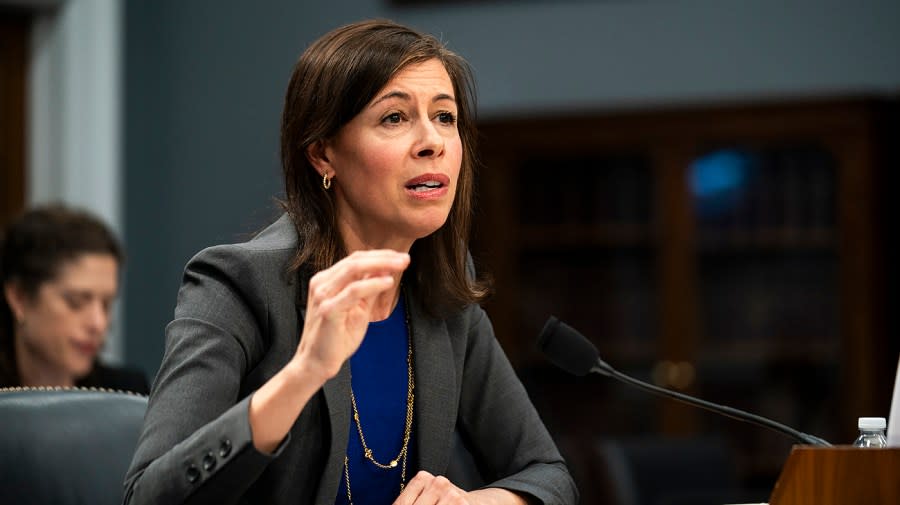Rosenworcel: Space Economy Growth Is ‘Astronomical’
FCC Chairwoman outlined priorities for innovation, sustainability, and competition in the New Space Age.
Jericho Casper

CRYSTAL CITY, Va., Dec. 17, 2024 – The number of operational satellites has surged from just over 2,000 in 2020 to nearly 11,000 today, signaling unprecedented growth in the space economy, said Federal Communications Commission Chairwoman Jessica Rosenworcel here on Tuesday.
“Whatever numbers you use, the rate of growth of the space economy is astronomical (couldn’t resist),” Rosenworcel remarked in her keynote address at the 20th anniversary of the U.S. Space Command and Satellite Industry Association Commercial SATCOM Workshop.
Rosenworcel pointed to new space-based innovations fueling global economic growth.
“In 2019, the Space Foundation pegged the size of the space economy at $428 billion. Those same analysts said the sector had grown to $570 billion by the end of 2023. Others project it will grow more than three times that by 2035,” she said.
She emphasized the increasing role of satellites in global wireless communications policy, highlighting that at the upcoming 2027 World Radiocommunication Conference, over 80 percent of the agenda items will be related to satellites or space.
“This New Space Age is different from the one that came before,” she said, referencing the era of Sputnik, the Apollo missions, and the launch of the first communications satellite. “Now this activity is no longer dependent on the prowess of political superpowers. It has new commercial models, new players, and new technologies.”
The FCC, Rosenworcel emphasized, has been working to ensure the U.S. remains at the forefront of this commercial space revolution. She outlined the commission’s four priorities for the space economy: creating modern regulations, fostering innovation, ensuring sustainability, and promoting competition.
To encourage space innovation, the FCC has introduced a spectrum framework for supplemental coverage from space, allowing satellite operators to partner with wireless carriers to provide connectivity in remote areas.
Companies like T-Mobile and SpaceX have already begun piloting direct-to-device satellite services, aiming to eliminate dead zones and expand wireless reach. Similarly, Comcast has explored new partnerships to integrate space-based solutions into their broader networks.
Rosenworcel described this as a step toward what she calls the Single Network Future.
“In this future, we will connect everyone, everywhere,” she said. “Satellites may be in our skies, but they are the anchor tenant.”
At the same time, the FCC has focused on space sustainability to address the growing threat of orbital debris, Rosenworcel said, highlighting the agency’s move to reduce satellite deorbit timelines from 25 years to 5 years and the FCC’s first-ever fine for failing to responsibly dispose of a satellite.
“If we authorize you to send something up into our skies, you must have a plan to take it back down. And if you fail to do so, penalties will follow," she said.
With the rapid evolution of space-based technologies, Rosenworcel added, the FCC will remain committed to ensuring the United States leads this new frontier.
“We need to promote space innovation, wherever possible,” Rosenworcel concluded. “Let us never forget that when we push the boundaries of what is possible, we are at our best.”









Member discussion